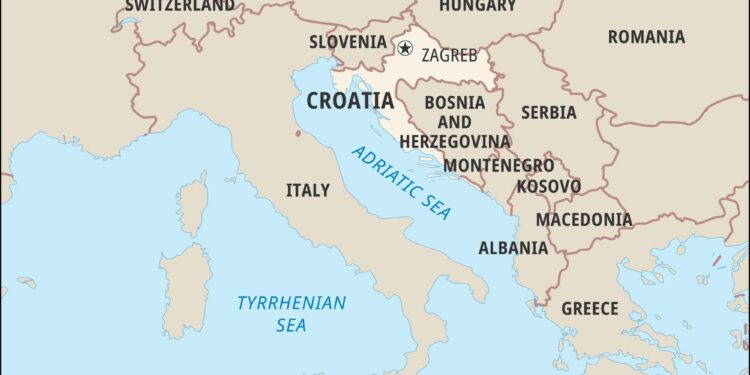Croatia has officially announced the reintroduction of mandatory military service, marking a significant shift in the country’s defense policy. The newly unveiled bill, presented to the parliament this week, aims to bolster national security amid growing regional and international tensions. This move reverses the abolition of conscription nearly a decade ago, signaling a broader restructuring of Croatia’s military strategy. The legislation and its potential implications have sparked widespread debate across the Balkans, drawing attention from political analysts and neighboring countries alike.
Croatia Reintroduces Compulsory Military Service Amid Regional Security Concerns
In a move that has captured regional attention, the Croatian government has passed legislation mandating compulsory military service for all eligible citizens, marking a significant shift in its defense policy. This legislative decision comes amid escalating security challenges in the Balkans, with concerns over geopolitical instability and the need to reinforce national defense capabilities. The bill outlines a six-month service period aimed at boosting the readiness of the Croatian Armed Forces through both active duty and reserve forces expansion.
- Mandatory for males aged 18-27
- Option for alternative civilian service under specific conditions
- Enhanced military training programs incorporated
- Focus on cyber defense and intelligence skills
| Key Aspect | Details |
|---|---|
| Service Duration | 6 months |
| Eligible Age Group | 18-27 years |
| Exemptions | Health, education, alternative service |
| Training Focus | Conventional & cyber defense |
Experts suggest that reinstating conscription serves as a strategic deterrent and a means to create a larger pool of trained personnel ready to respond to potential crises. Critics, however, have voiced concerns about the impact on youth employment and education pipelines. Despite mixed public opinion, the government asserts that this policy is essential for safeguarding national sovereignty and adapting to the evolving security climate in Southeast Europe.
Implications for Youth and National Defense Strategy Explored
The reintroduction of conscription is poised to reshape the relationship between Croatian youth and the country’s defense framework. Beyond military preparedness, this move is expected to foster a stronger sense of civic duty and national identity among the younger population. With a curriculum combining physical training, discipline, and national history, the mandatory service aims to cultivate resilience and commitment, potentially narrowing generational gaps and reinforcing societal cohesion.
Strategically, the bill signals Croatia’s response to evolving security challenges in the Balkan region. Officials emphasize that mandatory service will expand the pool of trained reservists capable of rapid mobilization, enhancing deterrence capacity. Key anticipated benefits include:
- Increased manpower for territorial defense units
- Improved civil-military relations through shared experience
- Development of versatile skill sets transferrable to civilian sectors
- Bolstered national resilience amid geopolitical uncertainties
| Aspect | Projected Impact |
|---|---|
| Youth Engagement | Higher patriotism and responsibility |
| Military Readiness | Enhanced rapid deployment capability |
| Economic Considerations | Temporary workforce reductions offset by training benefits |
| Social Integration | Bridging ethnic and regional divides |
Policy Experts Advise Comprehensive Training and Integration Programs
Leading policy makers emphasize that the successful reintroduction of mandatory military service in Croatia hinges not only on enlistment numbers but also on comprehensive training and smooth integration into civilian life. Experts advocate for a multifaceted approach, combining rigorous physical and technical training with psychological support, cultural sensitivity programs, and career development workshops. Such measures are designed to prepare conscripts for the demands of military duty while easing their eventual transition back to society.
Key recommendations put forth include:
- Holistic basic training curricula tailored to diverse age groups
- Mental health counseling and resilience-building sessions
- Collaborative partnership with industries for post-service employment opportunities
- Community engagement initiatives to foster support and understanding
| Training Component | Duration | Primary Goal |
|---|---|---|
| Physical Conditioning | 8 weeks | Build core strength and endurance |
| Technical Skills | 6 weeks | Enhance operational proficiency |
| Civic Education | 4 weeks | Promote national awareness and responsibility |
| Career Planning | 2 weeks | Prepare for reintegration into workforce |
Key Takeaways
As Croatia moves forward with the reinstatement of mandatory military service, the decision marks a significant shift in its defense policy amid evolving regional security concerns. The bill’s implementation will not only reshape the country’s military structure but also spark wider debates on national identity and civic responsibility. Observers will be watching closely to see how this development influences Croatia’s role within the Balkans and broader European security frameworks in the months ahead.
















